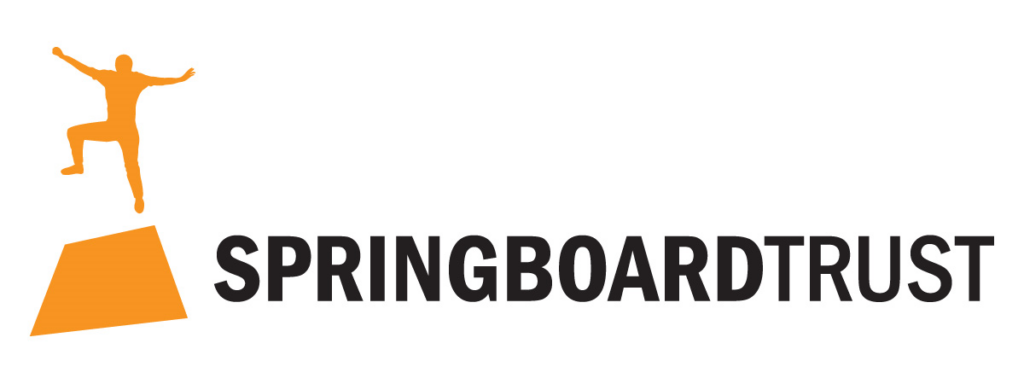Springboard Trust brings together leaders from across Aotearoa to strengthen leadership so our tamariki mokopuna thrive.
We are proud to share our Leading a Performance Culture webinar featuring Suzanne Mariassouce (Principal, Te Kura Takawaenga o Tokoroa | Tokoroa Intermediate School) and Rob Nichol (Chief Executive, New Zealand Rugby Players Association), who share their experiences and insights in leading performances cultures. Scroll down below the video for some key messages from the session.
Key messages from Suzanne:
“Have a game plan – and practice it to within an inch of it’s life.” Suzanne Mariassouce
- Have a game plan and everyone executes to perfection – that’s what you’re training for. Your game plan will become your default. You will always fall back on your game plan when things get hairy.
- Have the vision in my heart and my mind – convince and welcome other people into my vision. Vision is how you get there and in principalship (compared to performance sport) you have the gift of time. Know yourself – have passion and know what hills you are prepared to die on.
- Implementation to get to your outcomes is about having a belief that when the going gets tough and it’s really challenging – you are smiling through it – believing in yourself and trusting that your vision is a good one.
- To bring your team along – use minimal words – but use the same higher value words – use the words that have impact. Know what individuals need.
- Know your leaders, know your teachers, spend time with them and let them feel important with you.
- Set aspirational goals with your team. Show your team how to take micro steps toward achieving them.
- Empowerment is key:
- listen closely to both ideas and complaints. Listen without judgment.
- Focus on the strengths and only the strengths
- Let things fail – show people how to cope with failures
- Build trust
- Have faith and belief in yourself and others
“The hill I’m prepared to die on is impact.” Suzanne Mariassouce
Key messages from Rob:
“It’s not what happens, it’s how you deal with it.” Rob Nichol
Key elements of a performance culture:
- The need for a purpose, purpose driven alignment and vision is fundamental to a performance culture. Work on your strategic framework of purpose and vision and be grounded in that.
- Develop a values and behaviours framework – this empowers and inspires the team. Have the values but make sure your team understand them, have self-described the behaviours that underpin them and the habits that will drive them.
- The living nature of your strategic framework means that you can go back and talk about the really tough times when you’ve had to persevere or deliver – the really tough days when the pressure is on, and the issue is significant – how did you handle it and did you practice the behaviours in your framework? Learn from that – debrief and process.
- The framework forces you to be incredibly principle based – it makes you gather all your information and think hard before you act on it.
Download slides
NZRPA Slides
How you bring a performance culture to life in your team:
- Leaders pick one of the values and sets of behaviours and debrief it with the rest of the team.
- Have examples and callouts when you see a member of your team exhibiting the values and behaviours – celebrate that.
- If you have got it wrong, you put your hand up and own it referencing back to the values and behaviours framework. Debrief it and learn from it.
- Collateral – building a physical presence for the values and behaviours framework and our inspirational vision.
- Language – bring the values, behaviours and vision to life in the way you communicate
- The framework should guide your decision making and your values should be honored through your decision making.
- Review and evolve the framework.
- You have your strategic framework and your annual plan. Have business as usual but also change it up. Changing it up is about how we are going to shift the dial – how will we make quantum leaps – toward achieving our vision.
- Consider a challenge mindset – identify the challenge or opportunity – and grabbing that challenge as a team – what is it we’ve got to do to take on that challenge and know it out of the park? These are the things that will take your team to another level, and they should be measurable.
- Consider a theme to underpin your year – Inspirational optimism for example – this empowers us and gives us energy.
- Focusing on how you are a team, working together – really know your people. Set a good cadence for connection. ‘No agenda’ meetings – to connect on a deeper level.
- There are skills involved in running a performance culture. You need to go out and work on the skills required to run and govern a performance culture – otherwise, don’t go there because it is irresponsible. The skills include:
- The ability to have the tough conversations
- Talk about selection
- To discipline and hold the standards that keeps your team together prepared to be in the trenches and do that great work.
- Working hard to the framework – if you can’t get the person to work in that framework, and you have tried everything – you need to change the person.
“Rather than measuring performance – how do you demonstrate your impact.” Rob Nichol









